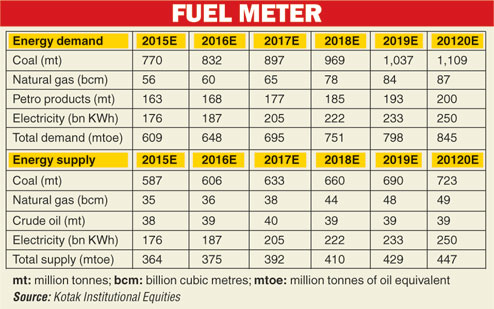 |
Mumbai, Oct. 27: The government’s new gas pricing formula, which was unveiled with fanfare just 10 days ago, isn’t free from controversy.
The critics have started picking holes in the formula — just as they did after the UPA government approved a radical formula recommended by C. Rangaranan, who headed the economic advisory panel to former Prime Minister Manmohan Singh.
In a report titled Fuel for Thought, Kotak Securities analysts Sanjeev Prasad, Tarun Lakhotia and Murtuzu Arsiwalla say the new formula may not be appropriate for a gas-deficit country like India as three of the four benchmark prices wormed into the equation are based on prices of gas-surplus countries rather than gas-importing countries.
Moreover, the decision to restrict a premium to the formula-determined price only to new deep-water discoveries may affect older discoveries, the report says.
“Any energy policy should recognise the reality of India’s rising energy deficit and provide effective solutions to address it. The government’s recent measures may fall short on the crucial point of enhancement of India’s energy security,” the report adds.
The report says India’s energy policy should recognise the reality of its rising energy deficit and provide the right incentives for investment.
“India will be better off offering a higher price to its ‘own’ companies rather than to overseas companies for gas imports,” the report adds.
The report also says that the country needs to rethink its coal mining policy and change the laws that restrain private investment in commercial coal mining. “The current policy and market structure has resulted in large coal shortages,” the report says.
The report claims India’s energy dependence on imports will almost double by 2020.
The shortage of coal and gas has led to low plant load factors for many electricity producers. State-owned distribution companies are also badly cash-strapped, leading to an inability to buy private power and frequent power cuts.











